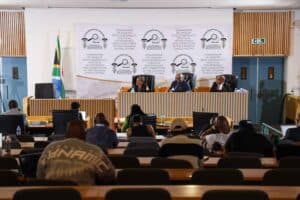It has been said before – and sadly, some of those who have said it have been accused of being racists – but it bears repeating.

“Apartheid” has been doing some heavy lifting recently, as sundry ANC ministers blame it for disasters ranging from the inner-city hijacked building fire in Joburg, to the collapse of our rail system.
President Cyril Ramaphosa got in on the act himself, saying: “Apartheid robbed us of a plethora of town planners in the education system…”
As the country slides faster into collapse, the ANC, led by Ramaphosa, seems to be accelerating the blame game, perhaps mindful of next year’s elections, as well as the propensity of the average South African blaming others for the ills befalling them.
What this scapegoating does is prevent a proper discussion about the long-lasting and insidious destruction wrought by the policy of separate development. This is evident, clearly in our physically divided cities where the haves live in some places, the have-nots in others.
These places are still largely defined by colour. So is our economy: privilege versus disadvantage.
By blaming apartheid, however, not only does the ANC wash its hands of accountability, it is also less likely to acknowledge or correct those instances where its policies are manifestly to blame for a deterioration in services.
ALSO READ: President Ramaphosa reflects on South Africa’s progress and challenges since apartheid
It has been said before – and sadly, some of those who have said it have been accused of being racists – but it bears repeating.
If South Africa wants to build itself up into a powerful and respected nation, it needs to follow the economic example of the “Asian tiger” countries which, despite the ravages of colonialism and bloody wars far worse than this country has experienced, have nevertheless managed to go “from zero to hero”.
Key to the success of those countries was that their governments and people were forward-looking. They focused on the future; not on the past. They remember their history – but are not held hostage by it.
ALSO READ: ‘Whether we like it or not, this is the result of apartheid’ − Lindiwe Zulu on Joburg CBD fire






